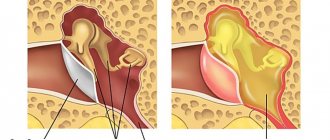Causes of the condition
If we consider tearfulness, the reasons can be physiological and pathological. The first group includes those that are not associated with diseases. Sometimes behind tearfulness lies increased emotionality and sensitivity. Often this feature is noticeable already from childhood. In this case, you can only learn to restrain your emotions when necessary. Psychologists help with this.
Physiological characteristics include the appearance of tearfulness in adolescence and during menopause. This is due to changes in hormonal levels. Once it stabilizes, the symptoms will go away. In the case of menopause, the doctor may prescribe medications that help control hormonal levels and mood.
Two main causes of tearfulness: inadequate reaction of the nervous system or unstable hormonal levels. They can develop against the background of diseases of the endocrine system or mental disorders.
Causes of male depression
Depression rarely occurs against a background of general well-being, especially in men. As a rule, this is prolonged stress or a severe traumatic event.
In men, the causes of depression are:
- problems at work;
- unstable financial situation;
- misunderstanding in the family;
- lack of friends;
- unstable position in society (emigration);
- death of a loved one;
- regular alcohol consumption;
- chronic diseases in children;
- long separation from loved ones (military service, business trips).
Often the intensity of stress is low: daily difficulties at work, disputes at home or with parents are a common occurrence for almost every person. But a long duration of the problem period or the subjective significance of a certain event (a strong desire to have a strong family, the need for recognition in the service, etc.) disrupts the biochemical processes in the brain and triggers the mechanism of depression.
The effect of stress is enhanced by the inability to express emotions and experiences. This is typical for men with a patriarchal family structure. At the same time, they are often required to have strong emotional reactions: strict upbringing of children, solving family problems, conversations with various authorities, etc.
A high level of responsibility for the family and the inability to share it with anyone also creates the preconditions for the occurrence of depressive disorder. After all, a man needs to be collected not only at work, but also at home, and there is practically no opportunity to relax.
Possible diseases
Among the pathologies in which tearfulness occurs, the main one is mental disorders. These include depression and neuroses. In this condition, the nervous system is in a state of increased excitability, and therefore often responds inadequately to external stimuli.
Exhaustion of the nervous system is also manifested by tearfulness. This condition is called “astheno-neurotic syndrome.” It requires observation and treatment together with a doctor.
Hormonal imbalance can also affect the emotional sphere. Therefore, endocrine pathologies can cause tearfulness. Hypothyroidism and diseases of the female reproductive system are more common causes than other diseases.
In some cases, emotional instability is caused by a vitamin or mineral deficiency. These conditions include hypovitaminosis D, iron deficiency and B12 deficiency anemia.
Causes of tearfulness
Tearfulness is often a symptom of a mental disorder - depression or neurasthenia. In addition, it can be caused by hormonal changes, diseases of the central nervous system, overwork or chronic stress. The causes of tearfulness are varied; tearfulness is often provoked by external events, but has a physiological basis.
Predisposing physiological factors
They say about some people that they are whiny since childhood, about others - on the contrary, that they never cry. Tearfulness most often develops on the basis of a physiological predisposition, which consists of the peculiarities of the functioning of the nervous system and the rate of production of certain hormones. Increased tearfulness is due to the following reasons:
- Instability of the nervous system.
With an unstable type of nervous activity, the processes of excitation and inhibition quickly replace each other, which is externally manifested by frequent mood swings and sudden emotional outbursts. People with this characteristic type of temperament are classified as melancholic or choleric. Tearfulness is characteristic of them from birth. - Hormonal imbalance.
Irritability and tearfulness intensify during periods of hormonal changes in the body in women: during puberty, menstruation, pregnancy, menopause, after childbirth. Increased production of some hormones and a lack of others lead to changes in the activity of parts of the brain responsible for the emotional state. - Physical overload.
If the body is unprepared, intense sports or hard physical labor are a source of stress and disrupt the functioning of internal organs and systems. If it is impossible to fully restore strength, tearfulness and irritability increase, and fatigue accumulates. A state of exhaustion gradually develops. - Vitamin deficiency.
The reason for tearfulness due to poor nutrition is a lack of B vitamins. They are responsible for the functioning of the nervous system, the production of hormones, skin condition, and muscle tone. With their deficiency, irritability increases, mood and performance decrease, insomnia develops, and appetite worsens. With prolonged hypovitaminosis, depression, neuroses, hormonal disorders, and Beri-Beri disease develop.
Psychological factors
Psychological causes of tearfulness include personality traits formed during life and external stressful psychotraumatic influences. Depending on this, a distinction is made between people who are tearful in character and those whose excessive tearfulness is explained by the current difficult situation. The most obvious causes of tearfulness are:
- Features of education.
The reason for a child's tearfulness is the attitude of the parents. Sometimes crying becomes a tool to attract the attention of adults and get what they want. If parents do everything to stop the tears - they buy toys, allow them not to go home from a walk, not to wash themselves - the child develops hysterical character traits. Another reason for tearfulness is self-doubt, fears, and a feeling of uselessness. This type of character is called neurasthenic. With insufficient love and support from parents, tearfulness intensifies. - Stress.
Negative experiences caused by a traumatic situation or daily minor troubles can lead to a state of stress. At the initial stages, the body fights and activates physiological and mental reserves. Thanks to this, a person maintains the same performance and emotional balance. Then comes the stage of exhaustion - the body gets tired of fighting, and the adverse effects continue. At the physiological level, this manifests itself as headaches and general malaise; at the psychological level, it manifests itself as tearfulness, irritability, and depression. - Routine.
Not only stress, but also routine in everyday life can lead to nervous exhaustion. In situations of monotonous work with repetitive stereotypical actions and an impoverished external environment, performance decreases. Monotony is accompanied by the experience of boredom, apathy and dissatisfaction with life, and tearfulness. Women are especially susceptible to emotional disturbances. Their tearfulness increases in the absence of friendly communication and variety of leisure activities.
Mental disorders
Tearfulness and increased tearfulness develop in some mental disorders. All of them are accompanied by a decrease in the body’s adaptive abilities, fatigue, depression, and instability of emotions. Patients cry often, do not always have an external reason for crying, and do not control their condition. Tearfulness can be a symptom of the following disorders:
- Depression.
With depressive disorders, patients are almost constantly in a state of low mood, sadness, and sadness. They have no interest in what is happening, so it is difficult to distract them and cheer them up. Tears and crying appear easily, often without external reasons. - Astheno-neurotic syndrome.
Neurasthenia occurs when a combination of psychotraumatic effects and intense physical or mental stress. Chronic lack of sleep and emotional burnout can be a provoking factor. Manifested by irritability, easy fatigue, and tearfulness. - PTSD.
Sometimes, unexplained tearfulness is a symptom of post-traumatic stress disorder. Sudden tears are triggered by memories of scary scenes and traumatic events from the past. Images pop up in the head involuntarily, in dreams and in reality, when the surrounding environment is somewhat reminiscent of an old situation (the same smell, sound, phrase). - Generalized anxiety disorder.
The causes of tearfulness in patients with an anxiety disorder are constant worry, fear, obsessive thoughts, and sleep disorders. With a long course of this pathology, panic attacks occur with vegetative crises (dizziness, breathing problems, palpitations). Tearfulness becomes even more noticeable, especially in women. - Childhood fears.
A characteristic feature of childhood is the ease of developing fears. They are formed under the influence of external situational influences and provoke the development of neurotic reactions, including crying. The cause of fear in infants and young children is the care of the mother. The more often the mother is absent, the more whiny the child becomes. Similarly, tearfulness in kindergarten develops with fear of strangers.
Somatic diseases
Frequent causes of tearfulness are physical illnesses. Frequent crying may indicate a change in brain function or severe hormonal imbalance. A more obvious connection cannot be ruled out: people cry when they experience pain and worry about the irreversible deterioration of their health and appearance. There are several somatic causes of tearfulness:
- Decreased quality of life.
Serious illnesses are characterized by limited mobility, deterioration of well-being, and changes in the patient’s appearance. Often patients are forced to give up their usual physical activity and communication, perform professional duties, and eat their favorite foods. This condition may be accompanied by reactive depression - crying, feelings of hopelessness, depression, uselessness. - Pain syndrome.
The feeling of frequent or constant pain is the cause of tearfulness in somatic patients, especially children. Physical suffering is manifested by a decrease in the patient’s activity, fixation on sensations coming from the body, depression and irritability. - Organic brain damage.
The cause of tearfulness is damage to nerve cells in the parts of the brain responsible for the formation of emotions and behavior. An example of such a disorder is “weakness”, tearfulness of the elderly with Alzheimer’s disease, Parkinson’s disease, atherosclerosis, and multiple sclerosis. Similar emotional disorders are possible with brain tumors, neuroinfections, and after traumatic brain injuries. - Endocrine diseases.
Emotions are affected by endocrine pathologies such as hyperthyroidism, hypothyroidism, diabetes mellitus, and Addison's disease. A lack or excess of certain hormones causes sudden bursts of irritability, anger, and crying. As a rule, patients notice them, but cannot explain the cause.
Diagnostics
An examination by a doctor and a blood test for certain indicators will help determine the cause. It is worth contacting a neurologist to exclude astheno-neurotic syndrome. If it is not confirmed, it is recommended to get tested and visit an endocrinologist with the results.
Read also: Premenstrual syndrome in women
List of examinations:
- complete blood count to assess hemoglobin concentration;
- determination of the level of vitamins D and B12;
- assessment of the amount of free T3 and T4, TSH;
- determination of the concentration of sex hormones;
- ferritin content in the blood.
If no abnormalities are found in the analyses, it is recommended to visit a psychotherapist. Using tests, he will determine the likelihood of neurosis or depression. The test results should also be shown to the doctor.
“I constantly cry for no reason, what should I do about it?”
Observe whether unnecessary tears are accompanied by other physiological problems. If with all this you experience lethargy, drowsiness, loss of appetite, it is likely that you lack certain substances, vitamins or hormones. First of all, you should get tested for the condition of the thyroid gland and consult an endocrinologist.
Ask a question
Treatment
The treatment plan depends on the results of the examination. If a person is healthy, it is recommended that he visit a psychologist to learn how to control emotions. If pathologies are present, treatment is carried out by a specialized specialist.
Treatment options:
- taking hormone replacement drugs in the presence of endocrine disorders;
- correction of vitamin D or B12 deficiency;
- psychotherapy and antidepressants for depression;
- sedatives for astheno-neurotic syndrome;
- tranquilizers for neurosis;
- Iron supplements for iron deficiency anemia.
To live a full life, a person needs to control his emotions and internal state. It is better to solve the problem of increased tearfulness before it causes serious damage in all areas of life.
Dear patients! Remember that only a qualified doctor can make an accurate diagnosis, determine the causes and nature of the disease, and prescribe effective treatment. You can make an appointment with our specialists or call a doctor at home by calling 8-(4822)-33-00-33
Be healthy and happy!
The main causes of this unpleasant disease:
- The impact on the human psyche of irritants that are too strong for him and lead to overstrain of the nervous system.
- Wrong lifestyle, lack of rest, mental overstrain. Today, neurosis can be safely called a disease caused by the flow of negativity in the media and a person’s desperate desire to achieve success.
It’s curious, but neurosis occurs not only from negative experiences, but also from joy. A person cannot cope with positive emotions and maintain psychological balance. But the basic reason is always a conflict in the human psyche, associated with the discrepancy between the desired and the actual or with the cultivation of a possible threat (both real and imagined).
Other causes of neurosis include:
- Workaholism, excellent student complex;
- Inability to respond correctly to stress;
- Too much ambition, desire for fame, power;
- Lack of personal freedom and social isolation;
- Conflict between instinctual drives and existing moral standards.
Biological causes include insufficiency of neurotransmitters and improper functioning of neurotransmitter systems, serious infectious and viral diseases, and addictions.










